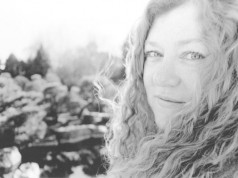Back in 1929, Boulder’s respectable folks called it “The Jungle.” Historical photographs from Boulder’s Carnegie Library show men and women standing in the mud among the shanties, shacks and tents they called home. Back in the day, local newspapers referred to these unfortunates as “tramps,” “squatters” and “undesirable people.” Today we call them “vagrants,” “transients” or “the homeless.”
Where these “undesirables” once lived, we now have a big city park, grassy lawns, a library and municipal offices. In fact, it’s because a shantytown once stood there that the city now owns this land. Purchasing the property — and clearing away shanties — was the city’s solution to what was considered an “eyesore.”
Did this early attempt at urban renewal solve the problem of homelessness? Of course not. It simply forced people to pack up whatever meager belongings they owned and move on.
But out of sight is out of mind, at least when it comes to the homeless. That’s just as true today as it was in 1929. The city has created a variety of ordinances aimed at controlling the homeless population. These ordinances address everything from sleeping in public to aggressive panhandling to panhandling from street medians.
Have these solved the city’s “homeless problem”? Far from it. The Boulder Shelter for the Homeless continues to face a demand it cannot meet with its 160 sleeping places.
“We’re turning away people because we’re full, but that’s been the case for 27 years. It’s unfortunate, but it’s nothing new,” says Greg Harms, the shelter’s executive director.
Some of those turned away find a place to sleep in overflow shelters housed in churches and other facilities. Some camp outdoors, often choosing places along Boulder Creek or in the hills west of town.
But if they sleep outside, they run the risk of being ticketed and fined $100. If they can’t pay the fine, they’ll likely land in jail.
A group of homeless people and local activists is publicly urging the Boulder City Council to eliminate the ban on camping on public land.
“This is a human rights issue,” said Betty Ball, spokeswoman for the Rocky Mountain Peace and Justice Center, in an interview earlier this week. “People who are homeless should not be criminalized. It’s a human right to be able to sleep.”
It’s a fact that human beings must sleep. They must also urinate and defecate. And yet doing these things in public because they have no place else to go can land them in jail. Yes, it’s a crime to be so poor that you lack the proverbial pot to piss in.
But would eliminating the ban on sleeping out on public land be enough?
Doing so would certainly prevent ludicrous arrests. It would also drive home the point that homelessness is a social issue, not a criminal one.
But there would be consequences. Consider this: Colorado Springs is home to an expanding tent city, the result of its not having a ban on public camping. Homeless people have flocked to the city because they can build a cardboard or canvas shelter and sit around a campfire on public land without fear of being arrested. Some Colorado Springs residents find this intolerable and
continue to agitate for a Boulder-style ban on public camping; others
see it as a chance to show compassion, bringing food and firewood to
those whose need is dire.
If
Boulder eliminated its ban on sleeping in public, is it possible that
we’d see another Jungle on city land? Absolutely. But does that alone
justify continuing the ban? No.
Still, there are good reasons to limit camping on public land.
For
starters, there’s the issue of public safety. It’s possible that a tent
city or shantytown might result in an increase in public drunkenness
and violence. But those are criminal matters and justifiably result in arrests.
And
then there’s the serious problem of public health. Having hundreds of
homeless pooping on the banks of Boulder Creek would create a health
hazard. Human feces left by homeless campers during the summer has at
times resulted in high levels of potentially harmful bacteria in
Boulder Creek.
And yet Boulder is an innovative community. There must be options.
When
Boulder County Jail’s population overflowed in the late ’90s, a kind of
tent city was erected next to the jail. Inmates who posed little risk
were housed in these upscale tents, whichwere kept under guard. The inmates had access to restrooms and a warm, dry place to sleep.
It
ought to be possible for the city or county to work with the homeless
shelter and local churches to set up similar tents — minus the guards,
of course — that could serve as bunk houses for the homeless. Providing
such shelter, together with access to toilets and running water, would
lessen the impact of having large numbers of people on public land and
might well save lives. Certainly, city-run bunk houses are more
befitting of human dignity — both theirs and ours — than treating
homeless campers like criminals. Of course, we could also increase the
size of our current homeless shelter.
Deciding
how our community should respond to homelessness won’t be simple. But
the current economy gives us a chance to rethink current policy and to
come up with better, more compassionate solutions.
One
hopes that in the 90 years since the City of Boulder bulldozed The
Jungle we’ve learned a thing or two. “Out of sight, out of mind” might
work for dust bunnies, but it should never serve as official city
policy for the treatment of our fellow human beings.














